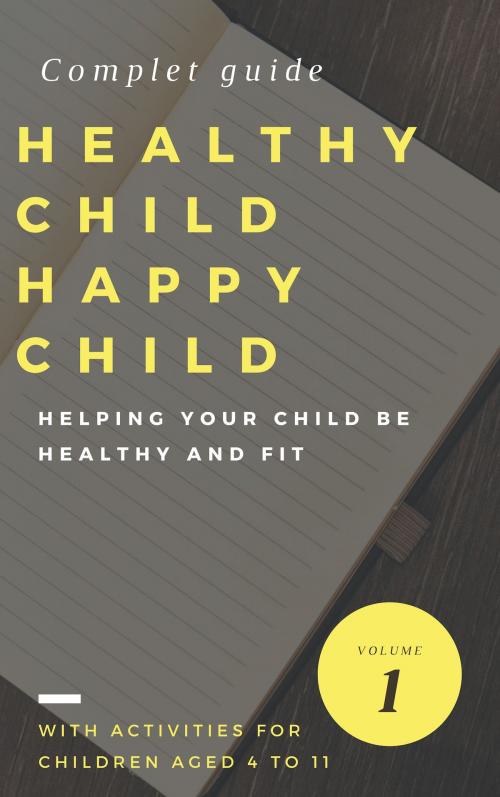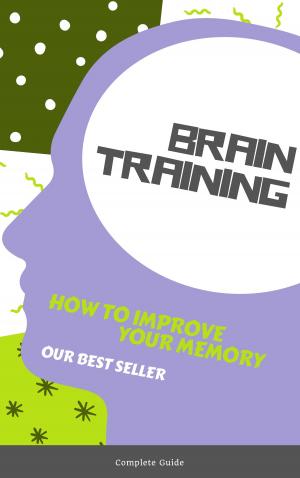HEALTHY CHILD HAPPY CHILD
HELPING YOUR CHILD BE HEALTHY AND FIT
Kids, ABCs, 123s, Body, Size and Shape| Author: | Baptiste | ISBN: | 1230002731445 |
| Publisher: | Baptiste | Publication: | October 24, 2018 |
| Imprint: | Language: | English |
| Author: | Baptiste |
| ISBN: | 1230002731445 |
| Publisher: | Baptiste |
| Publication: | October 24, 2018 |
| Imprint: | |
| Language: | English |
HEALTHY CHILD HAPPY CHILD
HELPING YOUR CHILD BE HEALTHY AND FIT
WITH ACTIVITIES FOR CHILDREN AGED 4 TO 11
Long-term good health is less an accident than the result of good habits and wise choices. To enjoy good health now and in the future, youngsters must learn how to eat, exercise, sleep, control stress, and be responsible for personal cleanliness and reducing the risk of disease. In addition, they need to be aware of what to do in an emergency and when to say "no".
Habits that include eating nutritious foods and understanding the relationship between physical and emotional health will help your child grow up healthy. Your child's ability to learn and the chances for a longer and more productive life can be greatly improved by developing and following good health practices.
First of All, Your Child Is Special
The mental and emotional health of your child is just as important as physical health. From the earliest moment, a child needs to feel that he or she is special and cared about by family members and friends.
A child who enjoys good mental and emotional health is able to approach new situations with confidence. When children are comfortable with themselves, they can express their emotions in a positive way. As children learn to value themselves and develop confidence in their ability to make responsible decisions, they are building a sense of self-worth or self-esteem.
Parents and teachers share the responsibility for helping children build self-confidence. A child who is confident is more successful in everyday interactions with peers and adults. Confidence in one's ability to learn new and difficult skills can affect future achievement, as well. Developing a trusting relationship with your child, establishing open communication, and recognizing personal achievements are all important. When children know they can do something well, it makes them feel special.
Get Ready, Get Set, Grow Up Healthy
From the time your child is born, there are ways in which you can help your child learn how to grow up healthy. This book has activities that help children
understand their emotions and build self-esteem;
eat the right foods;
prvent disease;
and build strong bodies.
The book also has safety tips, ways to help your child say "no" to drugs, a section on parents and the schools, a bibliography, and a chart to help you keep track of your child's vaccinations.
HEALTHY CHILD HAPPY CHILD
HELPING YOUR CHILD BE HEALTHY AND FIT
WITH ACTIVITIES FOR CHILDREN AGED 4 TO 11
Long-term good health is less an accident than the result of good habits and wise choices. To enjoy good health now and in the future, youngsters must learn how to eat, exercise, sleep, control stress, and be responsible for personal cleanliness and reducing the risk of disease. In addition, they need to be aware of what to do in an emergency and when to say "no".
Habits that include eating nutritious foods and understanding the relationship between physical and emotional health will help your child grow up healthy. Your child's ability to learn and the chances for a longer and more productive life can be greatly improved by developing and following good health practices.
First of All, Your Child Is Special
The mental and emotional health of your child is just as important as physical health. From the earliest moment, a child needs to feel that he or she is special and cared about by family members and friends.
A child who enjoys good mental and emotional health is able to approach new situations with confidence. When children are comfortable with themselves, they can express their emotions in a positive way. As children learn to value themselves and develop confidence in their ability to make responsible decisions, they are building a sense of self-worth or self-esteem.
Parents and teachers share the responsibility for helping children build self-confidence. A child who is confident is more successful in everyday interactions with peers and adults. Confidence in one's ability to learn new and difficult skills can affect future achievement, as well. Developing a trusting relationship with your child, establishing open communication, and recognizing personal achievements are all important. When children know they can do something well, it makes them feel special.
Get Ready, Get Set, Grow Up Healthy
From the time your child is born, there are ways in which you can help your child learn how to grow up healthy. This book has activities that help children
understand their emotions and build self-esteem;
eat the right foods;
prvent disease;
and build strong bodies.
The book also has safety tips, ways to help your child say "no" to drugs, a section on parents and the schools, a bibliography, and a chart to help you keep track of your child's vaccinations.















